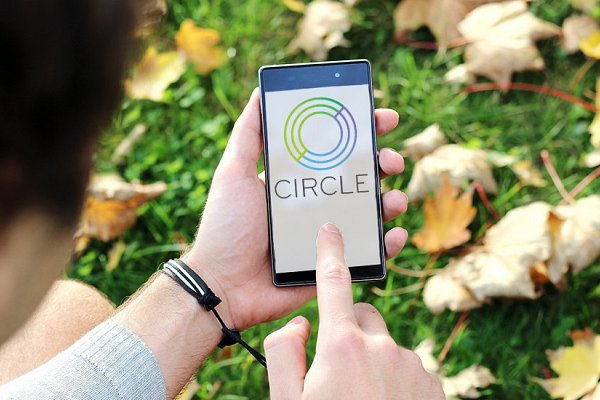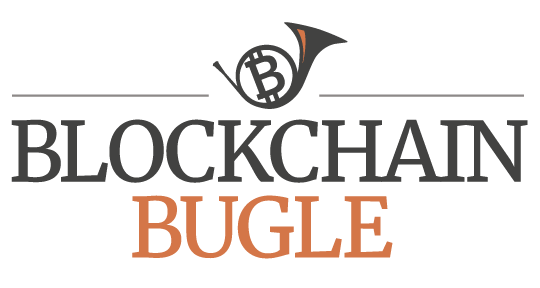Beyond Bitcoin: Circle Pivots to Next-Gen Blockchain-Enabled Social Payments

The Wall Street Journal posted a story on December 7, 2017 titled “Bitcoin Powerhouse Will Pull the Plug on Bitcoin.” In fact, “bitcoin bank” Circle Internet Financial announced that, among other developments, it will no longer offer customers the ability to buy and sell bitcoins.
“Using bitcoin for speculative trading or people buying and selling bitcoin because they think it’s fun — that’s not an interesting business for us,” said Jeremy Allaire, Circle’s Co-Founder and CEO, in an interview with Reuters. “A few years ago when we started the company, bitcoin was the only digital currency technology that mattered. We obviously envisioned it as a mainstream phenomenon and we had expected more progress in terms of technology development, but the development has slowed in the last three years.”
Allaire seems dissatisfied with the overall state of the Bitcoin system. “The story is one of essentially gridlock amongst core developers, while mainstream companies are using this technology,” he said. “We’ve been deeply frustrated with that lack of progress, and we want to move it forward.”
Circle’s announcement is more sober and factual, and less sensationalized, than the WSJ headline. The company is not “pulling the plug on Bitcoin” — only on bitcoin trading, Circle’s customers will continue to be able to receive, send and hold bitcoin, but they will have to use alternative options to trade bitcoin.
“[We are] eliminating the ability for customers to buy and sell bitcoin directly on Circle, and introducing a new preferred bitcoin exchange partnership with Coinbase,” say Allaire and Sean Neville, Circle Co-Founder and President in the joint post. “Consumers who seek to buy and sell bitcoin in the future may now leverage our new preferred partnership with Coinbase. Customers may still send their bitcoin to any wallet or exchange of their choosing, but Coinbase is our recommended consumer bitcoin exchange.”
However, Circle’s announcement does seem to mean that the company is de-emphasizing bitcoin and considering it as just one of many options for backend blockchain-mediated transactions. Besides bitcoin, Circle users have the ability to hold funds in U.S. dollars, euros or British pounds, depending on their location. According to the company, blockchain-aided payments in traditional currencies have been growing much faster than bitcoin payments on the Circle platform. Circle plans to continue using bitcoin and other digital tokens behind the scenes to settle transactions in traditional currencies.
New Focus on Social Payments
The main focus of Circle’s announcement is on Circle apps for the web, iOS and Android, now updated with messaging features and a new emphasis on social payments.
“We’ve rolled out new messaging capabilities to all Circle customers across all of our apps on the web, iOS and Android,” say Allaire and Neville. “We’ve long argued that social payments are best experienced in the context of the conversations and interactions we have with friends, colleagues, family members and individual sellers. Messaging provides context for a payment, whether that be with a funny image, a photo of a meal shared, a moment from a night out, or a picture of the product someone is selling.”
In other words, Circle is trying to position its apps as social messaging platforms — like WeChat, Messenger, or WhatsApp — but with built-in payments via Circle’s network. The transaction history between two users is stored in a single conversation, a feature that is also available for Apple’s iMessage in iOS 10.
Introducing Spark
Circle is also launching a new blockchain technology dubbed Spark: a protocol for digital wallets to exchange value using blockchains, including bitcoin, as settlement layers. According to Circle, Spark, which the company plans to open-source and make available to wallet developers, is designed to offer a seamless wallet-to-wallet payment experience that reflects local currency exchange rates while ensuring full KYC/AML compliance.
Circle is initially deploying Spark within the framework of two new partnerships with Korea’s Korbit and the Philippines’ Coins.ph, two digital currency operators that will connect to Circle and leverage the Spark APIs to serve their local markets and currencies. It’s worth noting that Coins.ph is also partnering with Stellar to provide global remittances to the Philippines.
The post Beyond Bitcoin: Circle Pivots to Next-Gen Blockchain-Enabled Social Payments appeared first on Bitcoin Magazine.


